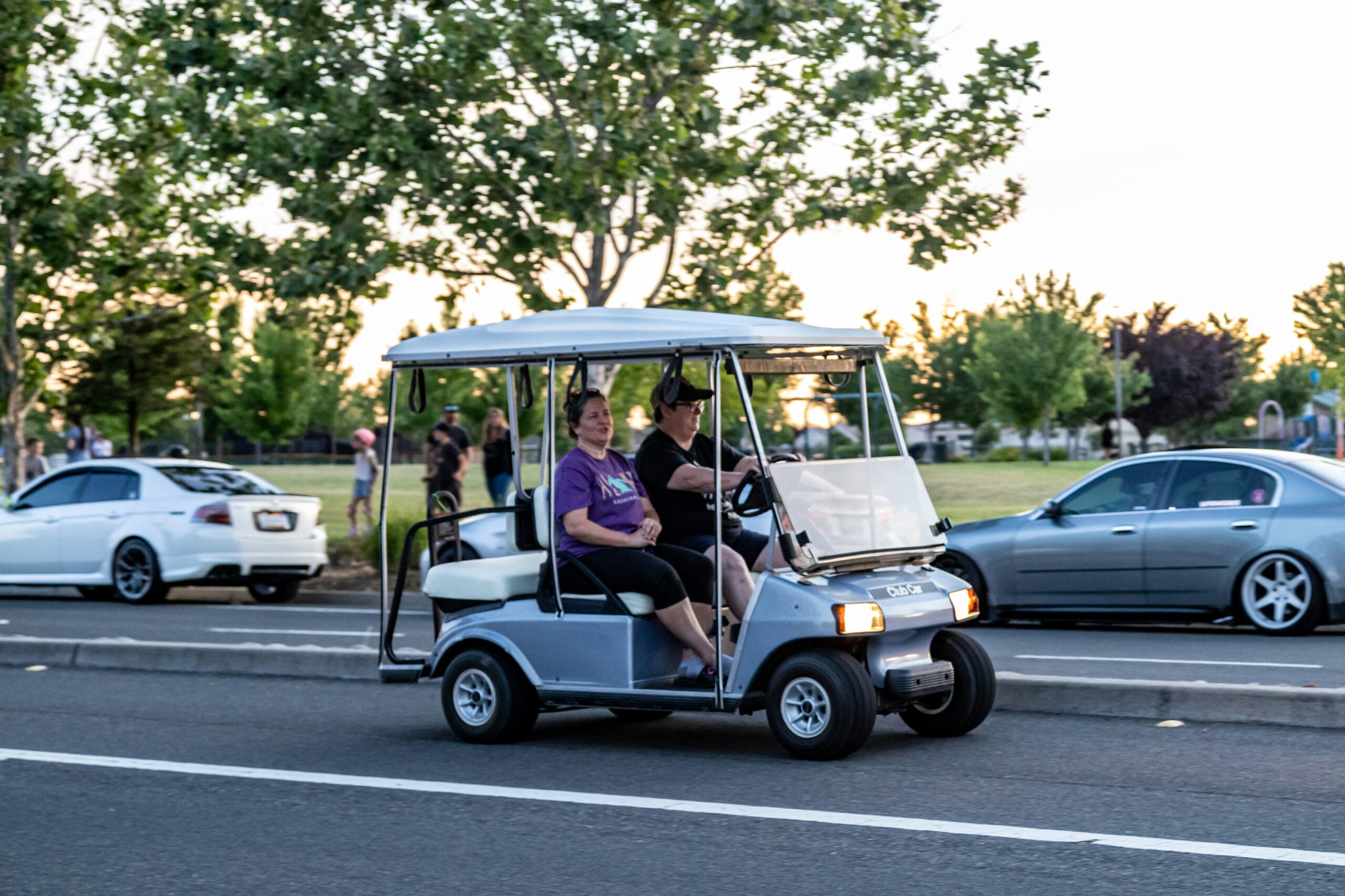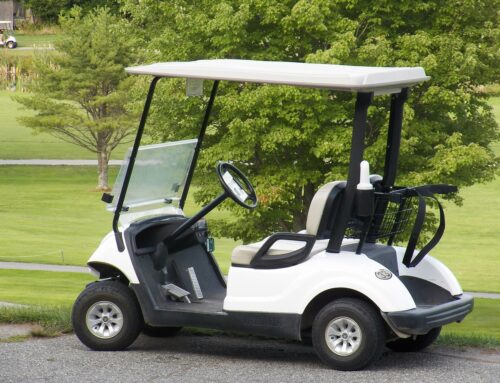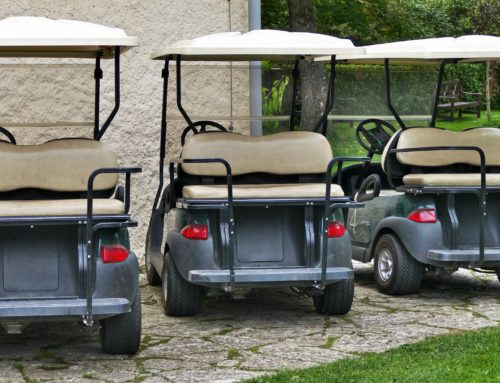With sunny weather year-round and many local golf course communities, it’s no surprise that golf carts are a popular mode of transportation in Manatee County. While it might seem like a golf cart is “just for fun,” Florida law and local ordinances treat them as motor vehicles in certain situations. Whether cruising through Lakewood Ranch or heading to the beach on Anna Maria Island, it’s important to understand how golf cart insurance works — and whether you need it.
Let’s dive into the details of golf cart insurance in Manatee County so you can stay safe and protected.
Is Golf Cart Insurance Required in Florida?
In Florida, golf cart insurance is not legally required when driving a “standard golf cart” on a golf course or within a private community. A standard golf cart is defined by law as having a top speed of under 20 mph and without headlights, seat belts, or turn signals. However, if the golf cart has been upgraded to meet Low-Speed Vehicle (LSV) standards—meaning it can travel between 20 and 25 mph, is equipped with safety features, and is registered with the DMV — then insurance is required just like it would be for a car.
In Manatee County, many residents modify their carts to be street-legal, allowing them to drive on roads with a posted speed limit of 35 mph or less. If you fall into this category, you’ll need:
- PIP (Personal Injury Protection)
- Property Damage Liability
- Possibly Bodily Injury Liability, depending on your insurance carrier
Why You Should Consider Golf Cart Insurance—Even If It’s Not Required
Even if your cart isn’t street legal or required to be insured by law, it’s still strongly recommended to have some type of golf cart insurance. After all, accidents happen – whether it’s a collision with another cart, a pedestrian, or property damage, you could be held personally liable. If you or a passenger gets injured in a golf cart accident, insurance can help cover those bills. While many rely on their homeowner’s insurance, it may not be enough. Some policies cover golf carts used on your property, but many exclude coverage once you leave your yard or private neighborhood.
Not only that, golf carts are valuable and easy targets for theft, especially in communities near the beach or tourist areas.
What Does This Type of Insurance Cover?
Depending on the policy and provider, golf cart insurance may include:
- Liability coverage: If you injure someone or damage their property
- Collision coverage: Pays for damage to your golf cart after an accident
- Comprehensive coverage: Covers theft, fire, or weather damage
- Uninsured/underinsured motorist coverage: Protects you if another driver causes an accident and doesn’t have enough coverage
- Medical payments: Helps pay medical bills for you or your passengers
Manatee County Rules and Golf Cart Use
Manatee County allows golf carts in certain neighborhoods, but local ordinances vary. Some gated communities have their own rules for golf cart operation.
Public road use may be allowed in areas like Holmes Beach or Palmetto, but only for LSVs that meet state registration and safety requirements. Street-legal carts must be registered, titled, and insured, and the driver must have a valid license. Always check with your local HOA or municipality before taking your golf cart on the road.
Stay Protected, Stay Legal
Whether you’re using a golf cart for a quick grocery run or just a leisurely ride around the neighborhood, understanding your insurance options is key. In Manatee County, where golf carts are a way of life in many communities, having the right coverage gives you peace of mind—and protects your wallet if something goes wrong.
If you aren’t sure what kind of policy you need, call a local insurance agent who understands Florida’s golf cart laws and can help tailor coverage to your usage and vehicle type. At Anderson & Associates Insurance Group, we offer golf cart insurance and a full range of insurance products. Call today to learn more.










